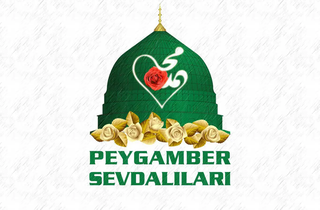The written statement, released on the first anniversary of the operation that began on October 7, 2023, emphasized the importance of solidarity, resistance, and the historical struggle of the people of Gaza and Palestine.
The statement opened with a verse from the Qur’an—Surah Al-Baqarah (2:249)—which reads, "How many small communities have prevailed over many large communities with Allah's permission. Allah is with the patient." This verse was invoked to underscore the resilience of the oppressed, drawing parallels between the early Muslim battles and the ongoing struggle of Palestinians against Israeli occupation.
The Prophet’s Lovers Foundation lauded the perseverance of Gaza's people, referring to them as the mujahideen who have continued to resist a century of oppression, the captivity of Al-Aqsa Mosque, and the inhuman treatment inflicted by the Israeli regime. The statement described the Operation Aqsa Flood as a bold and necessary stand against the Zionist regime, which was preparing a unified attack on the oppressed people of Palestine.
The foundation drew attention to the extraordinary circumstances in which the people of Gaza have been forced to operate. Isolated and besieged for years, they have suffered extreme poverty, military blockades, and an apparent lack of international support. Yet, despite these hardships, they have raised the banner of jihad, stepping onto the battlefield in defense of their honor and the dignity of the entire Islamic Ummah.
Central to the statement was the assertion that Gaza’s struggle is not merely for survival, but for the liberation of Jerusalem and the Al-Aqsa Mosque—the first qibla of Islam and the third holiest shrine. The foundation highlighted that the people of Gaza and the resistance front are waging jihad to free Jerusalem from Israeli occupation, a cause that holds deep significance for Muslims worldwide. The resistance is framed as a direct confrontation against the Zionist regime, which the foundation accused of orchestrating civil wars and instability throughout the Islamic world.
The foundation went on to describe the situation in Palestine and Lebanon as a "terrible genocide." Mosques, schools, and hospitals have been systematically destroyed, it claimed, as the Israeli occupation continues its onslaught against these regions. The silence of the international community, particularly the United States, Europe, and other "anti-Islamic powers," was criticized for emboldening Israel’s continued aggression.
In a passionate plea, the Prophet’s Lovers Foundation urged Muslims, as well as people of conscience worldwide, to raise their voices against the ongoing massacre. The foundation stressed the need for global protests, demonstrations, and campaigns to publicly declare support for the Palestinian and Lebanese people, who continue to resist despite overwhelming odds.
The statement also underscored the symbolic importance of the Aqsa Flood operation, describing it as a source of hope and morale for oppressed peoples around the world. For the Islamic Ummah, which has faced centuries of Western occupation and domination, the resistance serves as a reminder that even a small, determined community can challenge seemingly invincible forces. The foundation claimed that the myth of Zionist invincibility has been shattered, thanks to the resistance efforts in Gaza.
In its conclusion, the Prophet’s Lovers Foundation called on the Islamic Ummah to support Gaza and Lebanon’s sacred resistance in every possible way. It urged Muslims to take their rightful place in what it described as a "holy jihad" for freedom and independence. The foundation encouraged people to join in mass press statements, marches, and rallies across the country to mark the anniversary of the Aqsa Flood.
The message was not only a call for support but also a reminder of the broader struggle for the liberation of Jerusalem and the continued resistance against Israeli occupation. The Prophet’s Lovers Foundation presented the Aqsa Flood as a pivotal moment in the fight for justice and freedom, urging Muslims to stand in solidarity with their Palestinian and Lebanese brothers and sisters in the face of continued Israeli brutality. (ILKHA)



 Dünya
Dünya
 Dünya
Dünya
 Güncel
Güncel
 Dünya
Dünya
 Dünya
Dünya
 Güncel
Güncel
 Dünya
Dünya
 Güncel
Güncel
 Dünya
Dünya
 Güncel
Güncel





